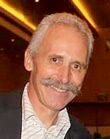Editorial by Jacques Mader

I entered the public health field in the seventies, at a time when everything was put in question. In the South, many countries recently freed from colonial rule, were full of hopes and dreams. In the North, we were not short of dreams and hopes either and solidarity was the key word. The Club of Rome report on the “Limits of Growth” in (1972) was the wakeup call on our planetary boundaries and a milestone for ecological thinking. The women’s liberation movement questioned the power balance between genders. The Alma Ata declaration (1978) was a pragmatic appeal to promote social justice in the access to health resources.
We were convinced with Antonio Gramsci that “The old world is dying, and the new world struggles to be born.” However, we forgot the second part of Gramsci’s quote: “… now is the time for monsters.” Monsters did appear. Just to name a few: the dominance of economic thinking with experts knowing the price of everything and the value of nothing; the ticking bomb of growing inequalities between and within countries; the rise of populism, fake news and autocrats; the destruction of our environment and the rapid change of climate as a consequence of our greed and shortsightedness…
We have now definitely reached planetary and socio-economic limits, and we must urgently take drastic decisions in order to implement a serious change of course. The challenges our humanity is facing require multilateral dialogue to find solutions, which benefit all. It offers us a real chance to rediscover solidarity. The Agenda 2030 shows a way forward; young generations express their concern about the future and demand “System change rather than climate change”. They think global and develop local innovations. I again have the feeling that “The old world is dying and the new world struggles to be born.” However, this time we must really beware of monsters…
After a couple of couple of decades working in many different jobs in the field of health, I have now reached the retirement age (65). I always considered the obligation to change position every 4 year as a chance for SDC. When new persons take up a position, they tend to reassess critically what was done so far, they bring different experience and new ideas. Similarly, the age limit to be a SDC employee helps prevent the risk of routine and fixed mind-set. It opens the possibility for younger people to access positions where they can promote their views and explore new avenues. Fortunately, our Global programme Health and SDC as a whole are not short of brilliant and committed younger staff.
I am happy that Alexander Schulze takes up the full position of Head of the Global Programme Health, with Erika Placella as Deputy. With their mix of competences and experience, they will boost the development of innovative approaches to address global health challenges.
On my side, I will definitely continue to engage through other ways for the changes necessary to improve social justice and try to increase our chance of common survival.
It was a privilege and a pleasure to interact and work with you all. I will miss our exchanges.
I wish you to maintain the passion for what you do.
Kind regards
Jacques Mader
In case you feel like keeping in touch: jacques.mader@gmail.com
